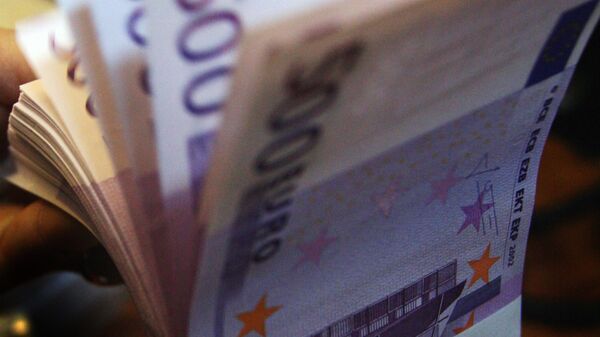By the end of January, only the German and Austrian central banks will be issuing 500 euro notes, with the other 17 central banks in the euro area halting the issuance of the violet-coloured notes by January 27, the European Central Bank (ECB) said in a statement.
According to the ECB, "to ensure a smooth transition and for logistical reasons," Deutsche Bundesbank and Oesterreichische Nationalbank will continue issuing the bills until April 26, when they too will stop doing so for good.
Holders of existing 500 euro banknotes can rest assured that the remaining bills will stay legal tender, with currency exchange operators and other commercial operators allowed to both accept and disburse the bills.
The 500 euro bill is one of the top five highest value banknotes in the world, but has gained a shady reputation by many as the favoured note of criminals. Rarely seen by ordinary Europeans, the bills have been nicknamed "Bin Ladens," both for their alleged use in the financing of crime and terrorism, and for their status as being well-known, but very rarely used in day-to-day commerce.
In the UK and Spain, police are using the high-value bills to track money laundering operations. In a 2010 study, the UK's Serious Organised Crime Agency reported that a whopping 90 percent of all 500 euro notes in the UK were being used exclusively by criminals.




